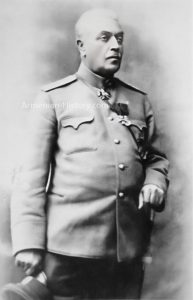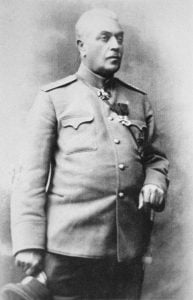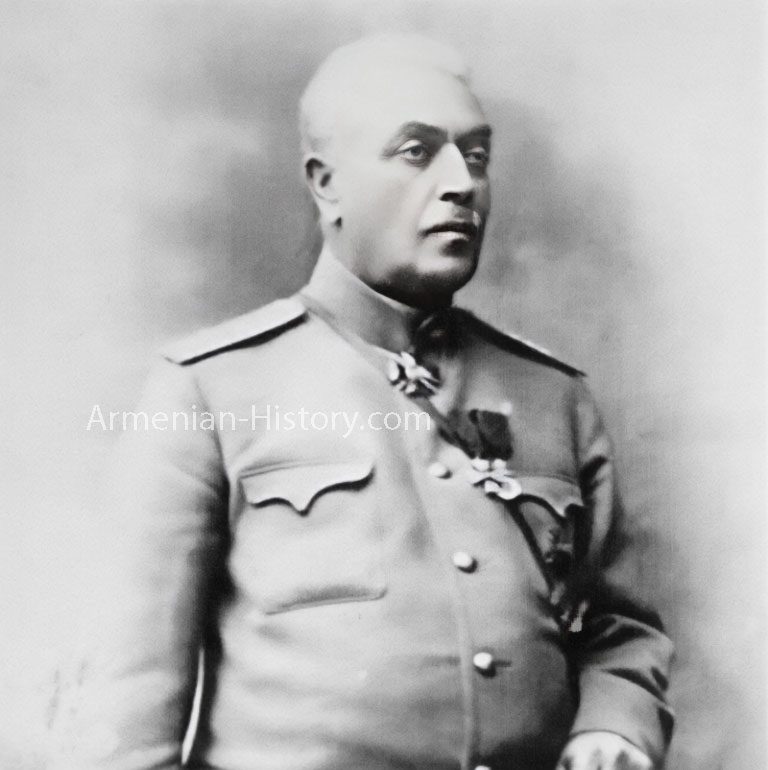Tovmas Nazarbekian Թովմաս Նազարբեկյան (Foma I. Nazarbekov) (Tiflis 1855 – Tiflis 1931) was a prominent Armenian military leader and general in the Imperial Russian Army who later became the commander of the armed forces of the First Republic of Armenia. He played a critical role in defending the Armenian people during one of the most turbulent periods in the nation’s modern history.
Born into a wealthy, noble family of Armenian descent in Tiflis (modern-day Tbilisi, Georgia), Nazarbekian pursued a military education at the Moscow military academy. He served with distinction during the Russo-Turkish War of 1877–78 and the Russo-Japanese War of 1904–05, earning high decorations including the Cross and the Sabre of St. George for bravery.

Nazarbekian temporarily resigned his commission when tsarist policies turned against Armenians, but returned to service when those policies were reversed. Appointed a general on the Caucasian front in 1914 during World War I, he led operations that resulted in major victories over Ottoman forces, including a significant triumph over Khalil Pasha at Diliman—though this battle is not mentioned in some key references like Allen and Muratoff’s Caucasian Battlefields. He also played a key role in the occupation of Bitlis.
Following the Russian Revolution of 1917 and the collapse of the Russian front, Nazarbekian was commissioned in December 1917 to lead the Armenian Corps. He was later ordered by Akaki Chkhenkeli to abandon the city of Kars in April 1918. Despite this setback, he helped organize Armenian defensive efforts during the critical battles of Sardarabad, Bash Abaran, and Karakilisa, which successfully repelled Ottoman advances and enabled the establishment of the First Republic of Armenia on May 28, 1918.
As commander-in-chief of the Armenian army, Nazarbekian struggled to maintain discipline following the abolition of the death penalty in May 1917—a decision he believed contributed to the loss of Kars due to declining morale. After the Sovietization of Armenia in late 1920, he was arrested in January 1921 along with 1,200 other officers. He was later amnestied in May 1921.
Tovmas Nazarbekian settled in Tiflis and lived quietly for the last decade of his life. He passed away in 1931. Though his final years were marked by political silence, his military leadership and devotion to the Armenian cause during a time of national crisis have secured his legacy as one of the most important figures in modern Armenian history.


